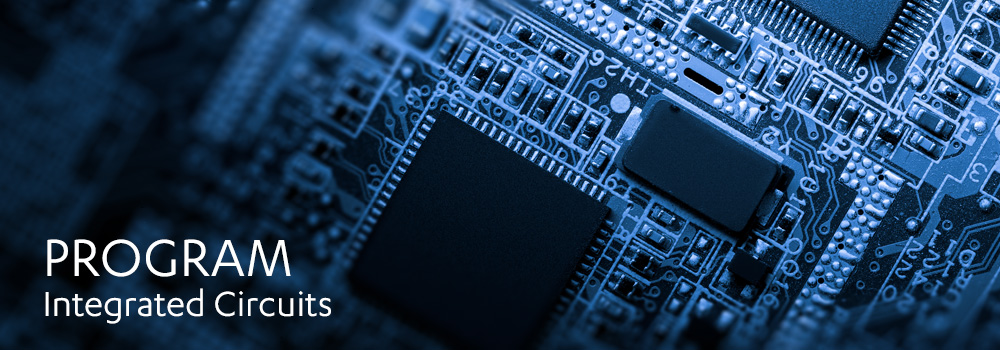
The integrated circuits program covers several specializations.
Integrated Circuits
Degree: Master of Science in Engineering – Integrated Circuits
Area Director: Professor Dejan Markovic – dejan@ee.ucla.edu
Program Description:
The integrated circuits program includes analog integrated (IC) design, design and modeling of VLSI circuits and systems, RF circuit and system design, signaling and synchronization, VLSI signal processing, and communication system design.
Program Statistics for Integrated Circuits
Important Note:
Core courses may not be offered during the summer term. Alternative courses may be substituted with approval from the Area Director.
Degree Requirements:
At least nine courses are required (36 Units), of which at least FIVE must be graduate courses at the 200 level (excluding ENGR 299 Capstone Project course), and meet Comprehensive Exam Requirement. Courses applied toward the degree must be taken for letter grade; S/U grading is not acceptable.
Select a minimum of six courses from the following list:
- EC ENGR 201A – VLSI Design Automation
- EC ENGR 201C – Modeling of VLSI Circuits and Systems
- EC ENGR 201D – Design in Nanoscale Technologies
- EC ENGR 209AS – Secure and Trustworthy Edge Computing Systems (Special Topics in Circuits and Embedded Systems)
- EC ENGR 215A – Analog Integrated Circuit Design
- EC ENGR 215B – Advanced Integrated Circuit Design
- EC ENGR 215C – Analysis and Design of RF Circuits and Systems
- EC ENGR 215D – Analog Microsystem Design
- EC ENGR 215E – Signaling and Synchronization
- EC ENGR 216B – VLSI Signal Processing
- EC ENGR M216A – Design of VLSI Circuits and Systems
- EC ENGR 233 – Wireless Communications System Design, Modeling and Implementation
Recommended Electives:
- EC ENGR 209AS – Artificial Intelligence on Chip (Special Topics in Circuits and Embedded Systems)
- EC ENGR 239AS – Reinforcement Learning: Theory and Applications (Special Topics in Signals and Systems)
Please visit the Registrar’s webpage for Course Descriptions.
COMPREHENSIVE EXAM REQUIREMENT
Students can meet the Comprehensive Exam Requirement by choosing ONE option below:
Option 1:
Take and Pass ENGR 299 Capstone Project course.
Option 2:
Take and pass three written exams for three different graduate level courses within the student’s area of specialization. The written exams are held concurrently with the final exam of the graduate level courses. Students may select which exams they would like to count towards the Comprehensive Exam requirement.
Electives:
As long as you have met the requirements above, the remaining courses may be selected from other Engineering departments. No approval is necessary. Please note: Students may not apply electives towards earning a certificate. Certificate programs are intended for non-matriculating students and are categorized as separate programs.
Thesis Plan:
NONE
Time-to-Degree:
Students are expected to complete the degree within two academic years and one quarter, including two summer sessions. The maximum time allowed in this program is three academic years (nine quarters), excluding summer sessions.
